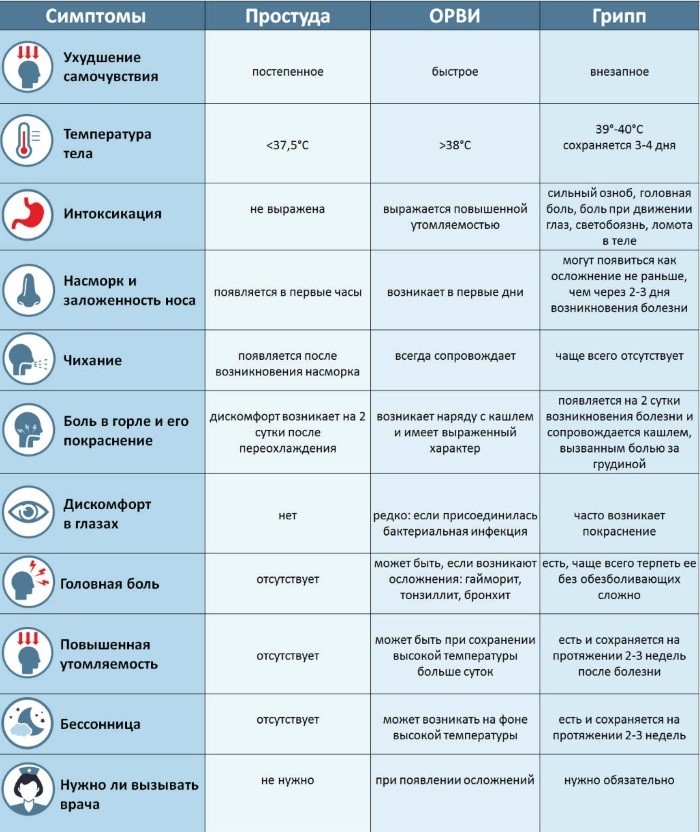Content
- The concept of endurance and self-control in psychology
- Factors that characterize exposure
- Internal resistance
- Self-doubt
- Confrontation
- The benefits of self-control
- Control over your life
- High level of motivation
- High efficiency of actions
- Resilience to conflicts
- Resilience in the face of difficulties
- Endurance in extreme situations
- How to learn to maintain composure? The most effective methods and techniques
- Adoption
- Yoga
- Meditation
- Preliminary preparation
- Physical exercise
- Psychological trainings
- Tips for Developing Emotional Restraint
- Ignoring external stimuli
- Delaying reaction time
- Relaxation
- Deep breathing
- Abstraction
- Video about excerpt in psychology
Restraint and ability to respond appropriately for stressful situations in psychology it is called endurance. Not all people have this quality, so in ordinary life you can often observe how a person loses his temper because of a trifling situation. The emergence of such reactions is associated with the level of upbringing, the ability to control their emotions, as well as the ability to act in a balanced and calm manner under any circumstances.
The concept of endurance and self-control in psychology
Endurance in psychology is the ability of an individual to restrain his negative emotions, as well as to patiently respond to any stressful situations. Persistent people are said to be self-controlled and able to control their behavior, regardless of the circumstances that put pressure on them.
Endurance and self-control are interconnected with the will of a person. It is willpower that helps a person to have the restraint to refuse something (manifestations of emotions, rude statements, hysterical reactions) and to show firmness and self-control where necessary.
A seasoned personality is able to:
- restrain feelings;
- control your mood;
- in the most difficult situations will not allow the commission of impulsive rash actions;
- keep cool.
The ability not to lose their presence of mind and control themselves helps such people to soberly assess the situation and not to panic, despair and despondency.
A seasoned individual has a sufficient supply of patience and endurance both in relation to factors affecting him for a long time (monotonous and boring work, a long daily journey), and suddenly arising irritants (sharp pain, sudden breakdown car).
When necessary, such a person is able to effectively withstand stress and calmly endure adversity and hardship. Endurance helps in this case, firstly, to avoid sliding into depressive states and disorders, which are often observed in people deprived of this quality, and secondly, to act in critical situations more effectively, which is called "with a cool head."

The concept opposite to self-control is a nervous breakdown, in which an unrestrained person, under the influence of various, most often not very pleasant events taking place in his life, he throws up a scandal and at the same time experiences a whole range of negative emotions - shame, stupor, guilt.
As a result of such relaxation, a person releases steam and partially gets rid of negativity, but at the same time often spoils relations with others and loses his own mental balance. The task of psychologists in working with such people is to increase resistance to stress and develop the maximum possible in each individual case of self-control and self-control.
Factors that characterize exposure
Endurance in psychology is a level of self-control of a person and self-control, which does not allow one to behave defiantly and inadequately even when exposed to strong stimuli. A person's endurance is formed when, living through certain situations, he overcomes quite specific factors, due to which he develops this most important quality in life.
Internal resistance
People often encounter inner suppression of endurance when they want to start a new business, for example, run daily in the morning or stop eating sweets. The organism itself accepts such decisions without much joy and begins to interfere with them, and this manifests itself both on the physical and emotional levels.
However, if the goal is set, then it is necessary to find resources in order to overcome the regularly arising internal resistance, because it is in such a situation that endurance and willpower are trained.
Self-doubt
It can also prevent a person from showing restraint and achieving goals when necessary. It can be difficult for a person to fulfill a promise or achieve a set goal due to the fact that he begins to strongly doubt that he will cope, will not let others down, and not be disgraced.  These moments are very difficult to develop willpower and endurance, and they should be worked out together with a psychologist.
These moments are very difficult to develop willpower and endurance, and they should be worked out together with a psychologist.
Confrontation
Another important factor in the development of an individual's self-control and self-control. Often, on the way to the goal, a person is faced with various temptations and interference in his private life of other people. In this case, it is important to remember the assigned tasks and be able to say a firm "no". You should not be afraid to resist inappropriate imposition and are afraid of offending someone, because really close people will never forcefully break the will of another person and force him to do what he does not wants.
The benefits of self-control
Not all people are ready to give up expressing their emotions, although many do not succeed due to excessive sensitivity or explosive temperament. However, even in these cases, one should strive to develop self-control and self-control in oneself, since the ability controlling feelings and restraining them allows you to help in a critical situation not only yourself, but also others people.
Control over your life
When a person is emotionally stable, he is in complete control of his life and the risk of committing rash acts is minimal. A well-developed skill of self-control in this situation allows people to make informed decisions and act calmly in any situation.
High level of motivation
Self-control and endurance contribute to the development of strong motivation in a person, as well as its retention at the proper level under any circumstances. A seasoned person does not give in to difficulties and considers them not as a complete collapse, but only as temporary obstacles on the way to achieving the goal.
High efficiency of actions
It is much easier for people who know how to show self-control and self-control to push obsessive thoughts and emotions aside and concentrate on the really important things. This ability helps to work and act more efficiently, since the distraction to external stimuli is rigidly suppressed by the person himself.
This ability helps to work and act more efficiently, since the distraction to external stimuli is rigidly suppressed by the person himself.
Resilience to conflicts
The ability to take control of emotions allows seasoned people to make decisions deliberately, rather than act out of the behest of the heart. Such people know that it is very easy to enter a conflict, but no one succeeds in getting out of it without emotional losses, therefore prudently avoid getting into such situations, as they are able to think soberly and not succumb to emotional impulses.
Resilience in the face of difficulties
The life path of any person consists of a series of events, both pleasant and not so. The ability to cope with adversity and not lose energy because of the piled up troubles helps to quickly recover from such situations and not fall into despair and despondency.
Endurance in extreme situations
People who are not distinguished by endurance, self-control and willpower, getting into extreme situations, often get lost and panic. This leads to the fact that their actions become thoughtless and chaotic, which further exacerbates the situation. The inner control that a seasoned person has allows him to collect his thoughts in such cases. and build a clear plan of action in your head, which will undoubtedly be more effective than hysteria and panic.
How to learn to maintain composure? The most effective methods and techniques
Endurance in psychology is the ability to control emotional impulses and not act spontaneously and thoughtlessly. Not all people have an innate endurance due to their character, as well as the impact of negative life events, which often lead to the loss of this important quality. However, in most cases, if you want, you can develop endurance and learn how to keep your emotions under control.
For this, there are a number of psychological and practical techniques to develop this quality:
- yoga class;
- meditation;
- Adoption;
- absolution;
- preliminary preparation.
Adoption
Acceptance is a trendy trend in psychology today. The main message of this approach is resignation to the situation or character traits of a loved one, which cannot be changed.
Many are skeptical about this advice, as they see this as a manifestation of weakness and passivity, but in fact, this approach helps to develop patience and at the same time endurance. It is necessary to realize that acceptance should not always be viewed as a defeat, since it often contributes to the self-improvement of the individual and the development of self-control.
Yoga
Practical yoga practice contributes to the individual's achievement of the sublime physical and spiritual state, which allows in many life situations to look at things philosophically with restraint and patiently. Such practices include various breathing and physical exercises that allow a person to learn to control their body, as well as emotions and mind.
Meditation
Meditations are special psychological exercises that do not require any effort, but only completely relax. They can be combined with breathing practices, but most often they are aimed at contemplating something that helps to abstract from the hustle and bustle and find peace.

This can be listening to pleasant music or sounds of nature, or watching natural beautiful views (mountains, sea, forest). Audio and video recordings are often used for meditation. Such practices help to restore health at the mental (mental and conscious) level and contribute to the development of patience, a deep understanding of the world order, and at the same time endurance and self-control.
Preliminary preparation
This is a technique that allows an individual, as it were, to experience in advance the negative development of an event and to prepare mentally for this. This method is not universal, since during some life upheavals, emotions are so strong that they are not it is possible, and undesirable, to try to reproduce on purpose (loss of relatives, serious accidents, disaster).
Reception is quite effective in working or everyday unpleasant moments. For example, you can pre-imagine emotions when a boss criticizes for a poorly executed report and prepare for this emotionally in order to withstand the blow with dignity and not worry too much about it occasion. It is also useful to study someone else's, including negative experiences, which will help you be prepared for any situation.
Letting go
Sometimes negative memories and bad experiences poison a person's life so much that faced with similar events, he begins to experience severe nervous tension and even panic attacks.
In this case, we are not talking about any self-control and self-control, therefore, first of all, one should sort out such emotions with a psychologist and work out negative reactions that automatically pop up in the mind, which will help to let go of the accumulated negative over time and not see the imminent danger in repetitive events.
Physical exercise
Athletes and those people in whose life there is a place for regular physical activity, as a rule, have more endurance than those whose lives go by without such activities. Professional sports train a person's will and endurance very well, his endurance.
Much more stress-resistant people, for whom sport, although not the main activity, is present in life in the form of regular training - fitness, swimming, running, cycling. Physical activity in both cases helps to strengthen the body, and at the same time, the human spirit and helps to reduce the level of stress and anxiety.
Psychological trainings
If a person wants to develop self-control and self-control, but at the same time realizes that he is not able to do this on his own, then he can always ask for help from certified specialists who will be able to him in this help.
| NLP (neurolinguistic programming) | Its supporters are convinced that there is a connection between neurological processes, verbal exposure and behavioral attitudes. With the help of special techniques (copying, modeling), it is possible to influence human behavior and achieve the desired goals - in this case, to form in the individual a sense of self-control and self-control. |
| Coaching | This is a professional connection with a person (spiritual father, psychologist, coach), which in practice helps to achieve the desired results in life. Classes with such mentors help to bridge the gap between where a person is at the moment and who he wants to be in the future. |
| Suggestion | It is very effective if the patterns of anxiety are extremely stable and difficult to adjust in any other way, which may be associated with past life events that have a sharply negative connotation. The task of a specialist is to verbally instill in a person the correct attitudes and beliefs. It is often used in combination with self-hypnosis, which is more effective. |
Tips for Developing Emotional Restraint
Endurance is a quality that helps a person not to commit rash acts and not to act rashly. Psychologists believe that a person who knows how to cope with his emotions and does not fall into a hysterical state always acts more effectively and resolves problem situations than one who loses his composure and the control.
In addition to techniques and techniques that allow a person to develop general self-control and self-control, there are also and techniques that help to quickly cope with the growing irritation and the desire to discharge and throw out emotions.
Ignoring external stimuli
When the psyche is exposed to strong external stimuli, it can be difficult to hold back and not break down. So, for example, you can be rude to someone on the phone if the call rang out at the wrong time, in the midst of the work process. Therefore, it is better in such a situation to simply ignore this call, so as not to break down and not to spoil the mood for yourself and the other person completely.
Delaying reaction time
If a person realizes that he cannot but react to a stimulus, then at least he should pause and count to 10. This will help you calm down and not lose control of the situation and composure.
Relaxation
In a situation of strong emotional stress, you can allow yourself to rest for 10-15 minutes, if possible, lie down and close your eyes. This technique will help extinguish overexcitement and cool your head.
Deep breathing
When a person begins to get nervous and conflict, his pulse quickens and breathing also becomes shallow and rapid. In this situation, you should try to restore a normal respiratory rhythm by taking 5-10 deep breaths and exhalations, if you can go outside. This technique will help slow down the production of stress hormones and restore the ability to think sanely.
Abstraction
It means the ability of an individual to look at the situation from the outside.. This method cannot always be applied right away without preliminary training and preparation, but if practice, he always helps to get together in a difficult situation, soberly assess what is happening and accept the right solution.
Endurance and self-control are the most important quality characteristics of a personality that affect success. Psychologists unanimously believe that people with these qualities are more effective in all areas of life and demonstrate better results in solving various kinds of problems and problems than hot-tempered and neurotic individuals.
This is due to the fact that a nervous, unrestrained person in difficult life moments gives in to the influence of emotions. and commits rash acts, which often leads to a worsening of his situation and further inflames situation.
Video about excerpt in psychology
Emotion Management and Emotional Traps:



